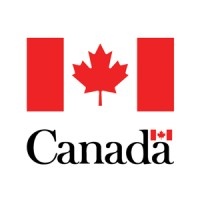
Canada–UK 2023-24 critical minerals sustainability and circularity
At a glance
- Maximum amount : 500,000 $
- Up to 50% of project cost
- Closing date : April 3, 2024
- Mining, quarrying, and oil and gas extraction
- Manufacturing
- Canada
- For-profit business
- $ 500,000 minimum revenue
- 150-500 employees
- All groups
Overview
The Canada–UK 2023-24 Critical Minerals Sustainability and Circularity Call for Proposals aims to support collaborative industrial R&D projects between Canadian and UK organizations focusing on innovative technologies for critical minerals, providing up to $500,000 CAD to eligible Canadian SMEs for projects with high commercialization potential. Eligible activities include novel manufacturing processes, enhancing the circularity of battery systems, and implementing sustainable approaches in critical minerals and their supply chains.
Activities funded
This grant focuses on advancing sustainability and circularity in the critical minerals sector, supporting projects that leverage innovative technologies for enhanced recovery, use, and governance. Projects should align with themes that foster circular solutions and sustainability in the critical minerals supply chain.
- Development of processes to enhance circularity in battery systems, including the recovery of critical minerals like cobalt, nickel, lithium, and manganese.
- Innovative methods for recovering new critical mineral streams from battery waste, such as graphite, silicon, and lithium iron phosphate.
- Safe and economical techniques for handling rare earth element end-of-life products through identification, collection, and dismantling for recovery.
- Creation of sustainable processing routes for recycled rare earth element materials.
- Novel approaches to reduce dependency on existing critical minerals and explore complete substitution systems.
- Development and application of life cycle analysis and sustainability models for critical mineral systems and their environmental impacts.
- Implementation of traceability and digitization methods such as material passports for critical minerals.
Eligibility
Eligibility for this grant is determined by specific requirements related to the applicant's profile and collaborative project formation.
- The Canadian SME applicant must be an incorporated, profit-oriented small or medium-sized business in Canada.
- The SME must have 500 or fewer full-time equivalent employees.
- The business should pursue growth and profit by developing and commercializing innovative, technology-driven new or improved products, services, or processes in Canada.
- The applicant must have a differentiated and protectable technology with commercial potential in global markets.
- The SME must have sufficient working capital and resources to undertake a multi-year R&D collaboration and commercialize the results.
- There must be a commitment to significant growth through international market expansion.
- Preference may be given to SMEs with a minimum of 15 full-time equivalent employees, have commercialized one or more products domestically or internationally, and generate greater than $500,000 CAD in annual revenue.
- The consortium must include at least one incorporated Canadian SME and one incorporated UK business of any size.
- All consortium parties must be unrelated, e.g., no ownership interest between them.
- The project partners must have an agreement addressing intellectual property rights and commercialization intent.
Who is eligible?
This grant call is aimed at fostering collaborative industrial research and development projects between Canadian and UK organizations in the domain of critical minerals technologies, focusing on sustainability and circular economy principles.
- Canadian small or medium-sized enterprises (SMEs) engaged in developing and commercializing innovative, technology-driven products, services, or processes.
- UK incorporated for-profit businesses of any size involved in industrial research projects with Canadian partners.
- Consortia involving both Canadian SMEs and UK businesses, incorporating collaboration with research institutes, universities, or government laboratories on a self-funded basis.
- Projects must focus on enhancing circularity in critical minerals, featuring innovative methods for the recovery or sustainability of battery and permanent magnet systems.
- Innovative approaches to reduce reliance on critical minerals or substitute them completely, aligning with environmental, societal, and governance models.
- Commitment from Canadian SMEs to substantial growth and international market expansion.
Eligible expenses
Eligible expenses for Canadian collaborators participating in the project include direct project costs to support its development and execution.
- Salaries for personnel directly working on the project, excluding academic principal investigator salaries.
- Research support costs, including student stipends, research materials, and minor equipment purchases up to $10,000.
- Travel and accommodation costs related to project activities.
- Professional services fees for contractors providing services directly to the project.
- Indirect costs representing up to 10% of total eligible project costs.
Eligible geographic areas
This grant is available for organizations from Canada and the United Kingdom as determined by the collaboration between respective national funding bodies. Eligible locations are those that align with the requirements for consortium formation.
- Companies based in Canada.
- Organizations located in the United Kingdom.
How to apply
Registration Phase
- Canadian SME applicants must register using the designated "Register" button on the application page.
- Provide basic information about the applicant and the organization during registration.
- NRC IRAP will review the registrations and reach out if additional information is needed.
- Qualifying applicants will be invited to the Expression of Interest phase.
Expression of Interest Phase
- Submit an Expression of Interest (EOI) form with details about the applicant and the collaborative project.
- Contact your NRC IRAP representative for guidance during this phase.
- Submit the EOI as early as possible to ensure timely evaluation.
- EOIs will be assessed by the NRC IRAP representative and the NRC IRAP International Office.
- Successful applicants will be invited to submit an International Consortium Project Proposal (ICPP).
International Consortium Project Proposal Phase
- Collaborate with all project partners to complete and submit an ICPP package.
- The ICPP application package should include:
- Innovate UK IFS project application form.
- NRC IRAP Canadian SME annex form.
- NRC Other Canadian Collaborator annex form (if applicable).
- Draft international consortium agreement detailing roles, IP rights, and management framework.
- Applications will be evaluated by an NRC IRAP evaluation team.
National Funding Body Proposal and Funding Agreement Phase
- Eligible project partners must complete funding proposals and sign funding agreements with their respective national funding bodies.
- Canadian SMEs work with NRC IRAP to prepare an NRC IRAP funding proposal and contribute to the agreement.
- Other Canadian collaborators work with NRC CBMI for necessary grants or contributions.
Additional information
Here are additional relevant details for this grant:
- Preference may be given to SME applicants with a minimum of 15 full-time equivalent employees, a history of commercializing products, and an annual revenue greater than $500,000 CAD.
- Canadian SMEs can apply to multiple NRC IRAP calls for proposals simultaneously, but the number of funded projects per applicant may be limited.
- Overhead costs for eligible Canadian research institutions may represent up to 10% of total eligible project costs.
- For projects including NRC researchers, separate, complementary funding agreements may be established for certain collaborators.
- An NRC researcher collaboration may allow eligibility for funding under the Critical Battery Materials Initiative.
- Both self-funded and sub-contracted participation is allowed for non-eligible project participants.
- The National Program Office manages funding agreements for Canadian collaborators and NRC researchers.
Contacts
Frequently Asked Questions about the Canada–UK 2023-24 critical minerals sustainability and circularity Program
What is the Canada–UK 2023-24 critical minerals sustainability and circularity?
How much funding can be received?
Who is eligible for the Canada–UK 2023-24 critical minerals sustainability and circularity program?
What expenses are eligible under Canada–UK 2023-24 critical minerals sustainability and circularity?
Who can I contact for more information about the Canada–UK 2023-24 critical minerals sustainability and circularity?
Where is the Canada–UK 2023-24 critical minerals sustainability and circularity available?
Is the Canada–UK 2023-24 critical minerals sustainability and circularity a grant, loan, or tax credit?
More programs like this
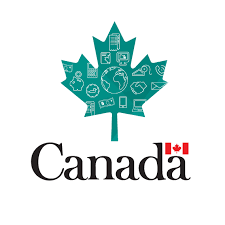
Clean Technology Manufacturing (CTM) Investment Tax Credit (ITC)
Canada Revenue Agency (CRA)
Strategic Innovation Fund (SIF)
Innovation, Science and Economic Development Canada (ISED)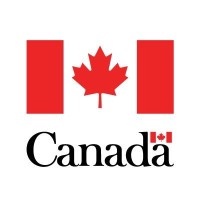
Green Industrial Facilities and Manufacturing Program — Energy Efficiency Solutions Track
Natural Resources Canada (NRCan)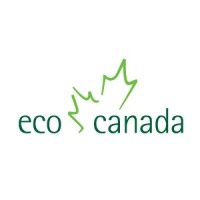
ECO Canada — Youth Employment in Natural Resources YNR
ECO Canada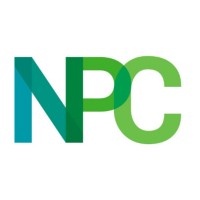
Access to Talent Program
Natural Products Canada (NPC)
Forest Innovation Program
Natural Resources Canada (NRCan)
Proof-of-Concept Program
Natural Products Canada (NPC)
Developing the next generation for skilled trades in advanced manufacturing
Excellence in Manufacturing Consortium (EMC)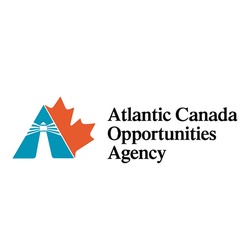
Regional Tariff Response Initiative (RTRI) – Atlantic Canada
Atlantic Canada Opportunities Agency (ACOA)